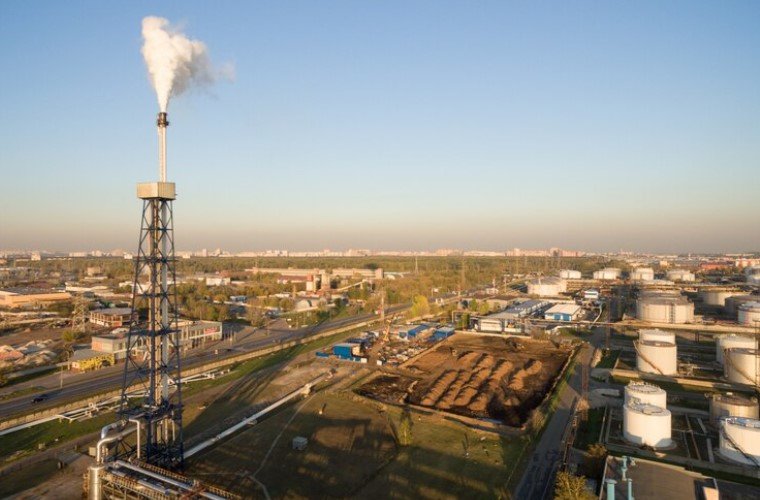How COP28 and Davos 2024 shaped the global agenda for climate and growth?

The world witnessed two major events in January 2024 that had a significant impact on the global agenda for climate and growth: the 28th Conference of the Parties (COP28) to the United Nations Framework Convention on Climate Change (UNFCCC) in Dubai and the 54th World Economic Forum (WEF) Annual Meeting in Davos, Switzerland. Both events brought together leaders from governments, businesses, civil society, and academia to discuss and take action on the most pressing challenges facing humanity and the planet. Here are three key lessons that emerged from these events.

The world needs to transition away from fossil fuels
One of the most historic outcomes of COP28 was the recognition of the need to transition away from fossil fuels, especially coal, oil, and gas, to limit global warming to 1.5°C above pre-industrial levels, as agreed in the Paris Agreement. This was reflected in the final text of the Dubai Agreement, which called for the “phase-down” of unabated coal power and the “phase-out” of inefficient fossil fuel subsidies. The agreement also urged developed countries to increase their financial support for developing countries to cope with the impacts of climate change and transition to low-carbon development.
The urgency of shifting to renewable energy sources was also echoed in Davos, where many speakers highlighted the opportunities and challenges of the energy transition. Ursula von der Leyen, President of the European Commission, announced that the EU would propose a carbon border adjustment mechanism to ensure a level playing field for its industries and prevent carbon leakage. Kristalina Georgieva, Managing Director of the International Monetary Fund (IMF), called for a “green, resilient, and inclusive recovery” from the COVID-19 pandemic, which would entail investing in clean energy, green infrastructure, and social protection. Pedro Sánchez, Prime Minister of Spain, shared his country’s ambitious plan to reach 100% renewable electricity by 2030 and become carbon neutral by 2050.
The world needs to cooperate more than ever before
Another key lesson from COP28 and Davos 2024 was the importance of global cooperation and solidarity in addressing the complex and interconnected challenges of the 21st century. Despite the geopolitical and geoeconomic tensions that marked the backdrop of these events, there were multiple calls for dialogue, collaboration, and partnership among different actors and stakeholders.
António Guterres, Secretary-General of the United Nations, warned that the world was facing a “trust deficit disorder” and urged for reforms to the global governance system to make it more inclusive, representative, and effective. He also stressed that cooperation was essential to tackle the existential threats of climate change and artificial intelligence, as well as to achieve the Sustainable Development Goals (SDGs) by 2030.
Jake Sullivan, the United States National Security Advisor, also offered a message of hope, saying that peace and security were possible if all parties “pulled together and made the wise and bold decisions” necessary. He reaffirmed the US commitment to support Ukraine in the face of Russian aggression, to deter conflict and promote de-escalation in the Middle East, and to engage with China in areas of common interest and concern.
Sheikh Mohammed bin Abdulrahman Al-Thani, Prime Minister and Minister of Foreign Affairs of Qatar, called for all parties to come to the table in response to the conflict in Gaza and build a way forward. He also announced that Qatar would host the next UN Climate Change Conference (COP29) in 2025 and pledged to work with all countries to advance the implementation of the Paris Agreement and the Dubai Agreement.
The world needs to embrace innovation and transformation
The third lesson from COP28 and Davos 2024 was the need to embrace innovation and transformation as drivers of growth and development in the post-pandemic era. Both events showcased the latest trends and breakthroughs in science, technology, and entrepreneurship and explored how they could be harnessed for the benefit of humanity and the planet.
Emmanuel Macron, President of France, announced that his country would invest €30 billion in artificial intelligence by 2030 and called for a global framework to govern the ethical and social implications of this technology. He also launched the Global AI Partnership, a multi-stakeholder initiative to foster collaboration and coordination on AI research and innovation.
Ajay Banga, Executive Chairman of Mastercard, shared his vision of a “digital-first” economy, where digital payments, platforms, and identities would enable greater financial inclusion, security, and efficiency. He also highlighted the role of the private sector in advancing social and environmental goals, such as gender equality, education, and climate action.
Isaac Herzog, President of Israel, showcased his country’s achievements in innovation and entrepreneurship, especially in the fields of biotechnology, cybersecurity, and agriculture. He also invited the world to join Israel in celebrating its 75th anniversary in 2023 and to participate in the Israel Innovation Summit, a global event that would showcase the best of Israeli innovation and creativity.




